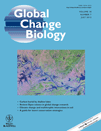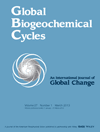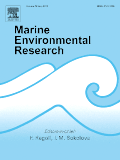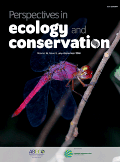
GLOBAL CHANGE BIOLOGY
metrics 2024
Shaping the Future of Ecology and Environmental Science
Introduction
GLOBAL CHANGE BIOLOGY, published by Wiley, is a leading journal dedicated to advancing the scientific understanding of the relationships between biological systems and global environmental changes. With an impressive impact factor placing it in the Q1 category across multiple disciplines—including Ecology, Environmental Chemistry, and Global and Planetary Change—this journal is essential for researchers, professionals, and students aiming to stay at the forefront of this dynamic field. The journal has a rich history since its inception in 1995, continually providing a platform for high-quality research that informs policy and management practices worldwide. Although it is not open access, the journal remains a valuable resource for those committed to exploring the complexities of ecological and environmental change. With a Scopus ranking of #3 in Global and Planetary Change and #6 in both Ecology and Environmental Chemistry, GLOBAL CHANGE BIOLOGY continues to shape the dialogue on the pressing environmental challenges of our time.
Metrics 2024
 4.29
4.29 10.80
10.80 13.00
13.00 313
313Metrics History
Rank 2024
Scopus
IF (Web Of Science)
JCI (Web Of Science)
Quartile History
Similar Journals

GLOBAL BIOGEOCHEMICAL CYCLES
Advancing our understanding of Earth's intricate systems.GLOBAL BIOGEOCHEMICAL CYCLES, published by the American Geophysical Union, is a leading journal in the field of geochemistry that has gained significant recognition since its inception in 1987. With an impressive impact factor and a Q1 ranking in multiple categories such as Atmospheric Science, Environmental Chemistry, and Global and Planetary Change, it serves as a crucial platform for the dissemination of high-quality research. This journal emphasizes interdisciplinary studies focusing on biogeochemical processes and their implications for global environmental change, attracting contributions from a diverse range of scientific communities. Researchers, professionals, and students engaged in atmospheric sciences, environmental chemistry, and planetary sciences will find invaluable insights and state-of-the-art methodologies within its pages. GLOBAL BIOGEOCHEMICAL CYCLES continues to advance our understanding of the Earth’s systems, thus holding a pivotal position in shaping future environmental policies and sustainability efforts.

Ecologies
Connecting research to action in the face of ecological challenges.Ecologies is a dynamic open-access journal published by MDPI, based in Switzerland, which focuses on the interdisciplinary study of ecological and environmental sciences. Since its inception in 2020, the journal has made significant strides in contributing to our understanding of complex ecological interactions, evolutionary processes, and the implications of biological diversity on ecosystem functionality. With its categorization in Q2 for Ecology and various Q3 rankings in related fields, it proudly offers a platform for innovative research that aims to address pressing ecological challenges. Researchers, professionals, and students can benefit from its comprehensive and insightful articles that are freely accessible, ensuring that critical findings are disseminated widely to facilitate informed decision-making and foster collaboration across disciplines. With the impact of climate change and biodiversity loss at the forefront of global discussions, Ecologies plays a pivotal role in shaping the future of ecological research and policy implementation.

MARINE ENVIRONMENTAL RESEARCH
Navigating Challenges in Marine EcologyMarine Environmental Research, published by Elsevier Science Ltd, is a premier journal in the field of aquatic science, oceanography, and environmental pollution, with an impressive 2023 Q1 ranking in multiple categories, including Aquatic Science and Oceanography. Established in 1978, this journal serves as a vital resource for researchers, professionals, and students dedicated to understanding marine ecosystems and the impacts of human activity on these environments. It fosters interdisciplinary dialogue, providing a platform for original research, reviews, and case studies that explore critical issues such as marine biodiversity, pollution, and ecosystem health. While the journal maintains a sophisticated peer-review process, it is committed to advancing knowledge without compromising rigorous academic standards. With its strong Scopus ranking, including significant positions in Aquatic Science and Oceanography, Marine Environmental Research continues to play an essential role in shaping the future of marine environmental research and conservation efforts globally.

International Journal of Limnology
Innovating Insights into Inland WatersThe International Journal of Limnology, published by EDP SCIENCES S A, is a cutting-edge journal dedicated to the field of aquatic sciences, with a strong emphasis on limnology—the study of inland waters. Headquartered in France, the journal serves as a vital resource for scholars and practitioners alike, aiming to advance the understanding of freshwater ecosystems and their management. With an e-ISSN of 2823-1465 and classified within the Q3 category of the 2023 Aquatic Science quartiles, it occupies a significant niche in academic research, ranking 150 out of 247 in Scopus listings. The journal’s open access policy ensures that research findings are widely disseminated, facilitating collaboration and innovation across global aquatic science communities. Published continuously from 2022 to 2024, the International Journal of Limnology aspires to contribute to sustainable practices and enhance ecological understanding, making it an essential publication for researchers, professionals, and students committed to the stewardship of aquatic resources.

APPLIED ECOLOGY AND ENVIRONMENTAL RESEARCH
Connecting scholars to tackle contemporary ecological challenges.Applied Ecology and Environmental Research is a distinguished journal published by ALOKI Applied Ecological Research and Forensic Inst Ltd, located in Hungary. Since its inception in 2003, the journal has provided a pivotal platform for the dissemination of innovative research and discussions pertaining to applied ecology and its intersection with environmental sciences. With its ISSN 1589-1623 and E-ISSN 1785-0037, the journal boasts a respectable presence, achieving a Q3 ranking in Agronomy and Crop Science and a Q4 ranking in Ecology, Evolution, Behavior, and Systematics as of 2023. This reflects its commitment to publishing high-quality research that is vital for advancing knowledge in these fields. While it primarily operates under a subscription model, authors and institutions are encouraged to contribute meaningful research that sparks dialogue and fosters collaboration among a diverse range of stakeholders in ecological research. Researchers, professionals, and students alike will find valuable insights and contributions that address contemporary environmental challenges and promote sustainability. Join the community of scholars who are shaping the future of ecology and environmental research through this impactful publication.

Perspectives in Ecology and Conservation
Innovative insights into conservation challenges and solutions.Perspectives in Ecology and Conservation, published by Elsevier Science Ltd, is a leading academic journal dedicated to advancing the fields of ecology, conservation, and environmental management. With a Q1 ranking in multiple categories, including Ecology, Management, Monitoring, Policy and Law, and Nature and Landscape Conservation, this journal boasts an impressive standing among its peers, making it essential reading for researchers and professionals. Since its inception in 2017 and running through 2024, it aims to provide innovative perspectives and critical analyses that enhance our understanding and practices in conservation science. The journal is accessible through open access options, facilitating broader dissemination of knowledge. Its commitment to addressing contemporary ecological challenges reinforces its importance in the academic community, promoting sustainable practices and informed policy-making in the face of urgent environmental issues.

GLOBAL ECOLOGY AND BIOGEOGRAPHY
Pioneering Research for a Sustainable FutureGLOBAL ECOLOGY AND BIOGEOGRAPHY is an esteemed academic journal published by Wiley that focuses on the dynamic interplay between ecological and biogeographical processes across the globe. With a strong commitment to advancing our understanding of biodiversity, conservation, and global change, this journal has secured a prestigious Q1 ranking in several categories, including Ecology, Ecology, Evolution, Behavior and Systematics, and Global and Planetary Change, highlighting its significant influence in the field. Since its inception in 1998, the journal has consistently provided a platform for high-quality research, featuring original articles that address critical ecological questions and emerging biogeographical trends. Researchers aiming to publish impactful work will appreciate the journal's rigorous peer-review process and its accessibility to a global audience. With a commendable track record reflected in its Scopus rankings, this journal is an essential resource for anyone dedicated to the study of ecology and biogeography.

Forest Ecosystems
Exploring the intricate web of forest life.Forest Ecosystems is a prestigious open access journal published by KEAI PUBLISHING LTD, dedicated to advancing knowledge in the fields of forestry, ecology, and conservation. Established in 2014 and located in Beijing, China, this journal has rapidly gained prominence, achieving Q1 status in multiple categories, including Ecology, Evolution, Behavior and Systematics, and Forestry in 2023. With an impressive rank of 19 out of 174 in the Scopus category of Agricultural and Biological Sciences - Forestry, it stands in the 89th percentile, reflecting its influential contributions to the field. The journal fosters scholarly discourse and disseminates innovative research aimed at understanding forest ecosystems and their vital role in our environment. Offering a robust platform for researchers, professionals, and students, Forest Ecosystems ensures accessibility through its open access format, enabling a wider audience to engage with and benefit from cutting-edge research dedicated to the stewardship of forest resources.

ECOGRAPHY
Advancing Ecological Insights for a Sustainable FutureECOGRAPHY, published by WILEY, stands at the forefront of ecological and evolutionary research, with an impressive Impact Factor reflecting its esteemed position in the Q1 category of Ecology, Evolution, Behavior, and Systematics. Operating since 1978 and transitioning to a fully Open Access model in 2020, the journal is dedicated to disseminating high-quality research that influences conservation practices and enhances our understanding of ecological dynamics. With an ISSN of 0906-7590 and an E-ISSN of 1600-0587, ECOGRAPHY has garnered a remarkable placement in Scopus rankings, being in the top 4% of its category, achieving an impressive rank of #27 out of 721 in Agricultural and Biological Sciences. Academics from around the globe benefit from the research published in this journal, which seeks to engage and inspire further exploration of ecological systems. For inquiries, ECOGRAPHY can be reached at their UK address: 111 River St, Hoboken 07030-5774, NJ.

Neotropical Biodiversity
Fostering collaboration for ecological resilience in the Neotropics.Neotropical Biodiversity is a prominent journal dedicated to advancing our understanding of biodiversity and ecological dynamics within the Neotropical region. Published by TAYLOR & FRANCIS LTD in the United Kingdom, this Open Access journal has been providing unrestricted access to research findings since 2015, fostering collaboration and knowledge sharing among the global scientific community. With an emphasis on innovative research in Ecology, Ecology, Evolution, Behavior and Systematics, and Global and Planetary Change, it has earned a reputation for excellence, currently holding a Q3 category in its field. As of 2023, the journal ranks in the 37th percentile for Environmental Science (Ecology) and in the 36th percentile for Agricultural and Biological Sciences (Ecology, Evolution, Behavior and Systematics), making it a valuable resource for researchers, professionals, and students interested in understanding and preserving biodiversity in one of the world's most diverse ecosystems. We invite you to explore the cutting-edge research published in Neotropical Biodiversity and contribute to the ongoing dialogue for environmental sustainability and ecological resilience.